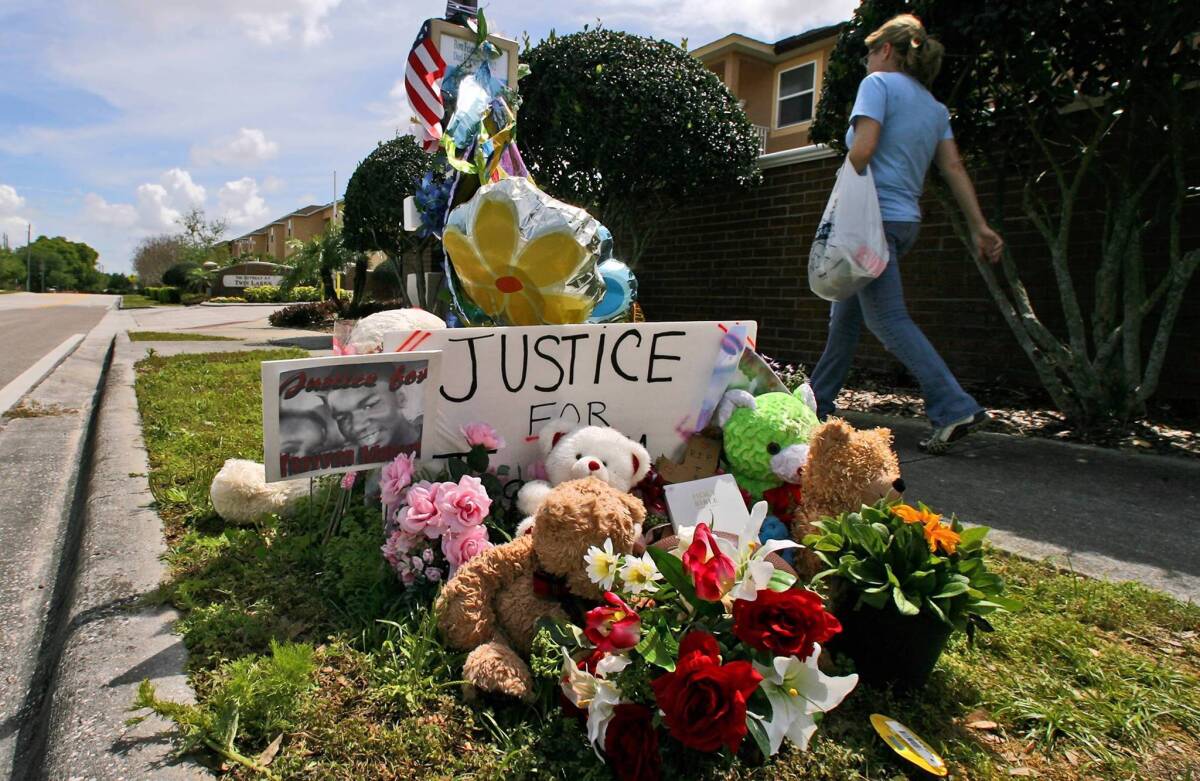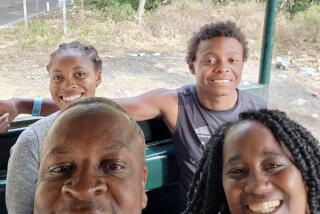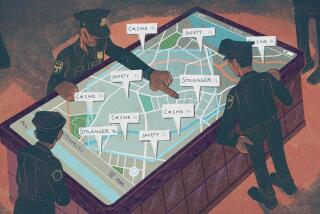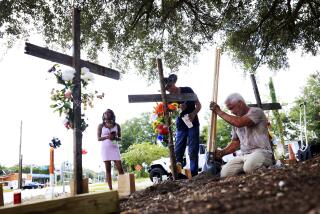City where Trayvon Martin was killed changes neighborhood watch rules

In a move that could ignite a legal battle, the Florida city where Trayvon Martin was killed will discourage neighborhood watch volunteers from carrying firearms, part of an effort to overhaul its police department and improve the city’s tarnished reputation.
George Zimmerman fatally shot Martin, an unarmed black teenager who was walking home from a convenience store, in February 2012. The case became a symbol of the country’s racial tensions and divisions over gun laws, and thrust Sanford, a central Florida city near Orlando, into the national spotlight.
The Sanford Police Department came under criticism when Zimmerman was not immediately charged. Zimmerman, who identifies himself as Latino, was a neighborhood watch volunteer, and critics called the incident an example of racial profiling and citizen vigilantism. The police chief at the time was fired.
Now the city’s new police chief, Cecil E. Smith, who took over in April, is trying to revamp the department.
At a community meeting in Sanford on Tuesday, Smith will formally announce changes to the city’s neighborhood watch program, including background checks for all volunteers, a six-week training program for block captains and monitoring by the Police Department. The department also will recommend that program volunteers not be armed while in the streets.
“The objective of neighborhood watch is to observe, identify and report, and that’s what we’re getting back to,” said Smith, who had suspended the program after he took over until he could implement reforms. He said he knew there would be push-back.
“We’re not going to make everybody happy,” Smith said.
Though welcomed by advocates of stricter gun laws, the program changes could conflict with a Florida state law that allows licensed gun owners to carry a concealed weapon.
“At the end of the day, this is a legal question the courts are going to consider: Does a rule like this unfairly limit a person’s access to carry firearms?” said Ken Novak, a professor of criminal justice at the University of Missouri-Kansas City, who has studied neighborhood watch groups.
Smith said the department would not ban firearms, but would “strongly suggest” that neighborhood watch volunteers not carry them.
“We’re not in the business of violating anyone’s 2nd Amendment rights,” Smith said.
But Sean Caranna, executive director of Florida Carry, a grass-roots organization that works to advance the right to bear arms, said he had reservations about the new policy.
“Someone walking through the neighborhood walking their dog who carries a concealed handgun for their own self-defense wouldn’t be subject to [giving up their gun], but a person who is on the neighborhood watch would be,” he said. “It puts people in a very strange position.”
Smith, meanwhile, hoped that discouraging the use of firearms would restore the value of the program, which he said had become dysfunctional and disorganized.
Francis Oliver, who has lived in Sanford for 65 years, said her trust in law enforcement and people in Sanford had diminished, and restoring it would be a slow process.
“Not trusting law enforcement in Sanford didn’t just start with Trayvon Martin; it was there before Trayvon Martin. It’s been there 100 years. You just don’t undo that kind of mentality in six months,” she said.
But Oliver, 70, said the background checks and other changes were a good start to regaining that trust on both fronts.
Chris Tutko, who retired in June as director of national neighborhood watch for the National Sheriffs’ Assn., said a volunteer is merely supposed to be the eyes and the ears of the police department. The association recommends that neighborhood watches be unarmed.
“All you do is make the phone call, step back and let law enforcement do their job,” he said.
Eugene Volokh, a law professor at UCLA, said that disarming neighborhood watch volunteers could scare people out of volunteering for duty in dangerous parts of town.
Caranna agreed, saying that asking neighborhood watch volunteers to be unarmed implies that the Police Department thinks the volunteers are immune from criminal predation, an idea he called ridiculous.
“We’re telling people who are in fact more subject to attack that they should not be armed,” he said.
David Ortman, 57, who lives in Sanford, said he welcomed the changes. Ortman said all guns should be taken away from neighborhood watch volunteers.
“I am concerned all of the time for my stepson because he is an African American youth,” Ortman said. “Quite frankly, the reality of our world is that he’s targeted.”
soumya.karlamangla@latimes.com
More to Read
Start your day right
Sign up for Essential California for news, features and recommendations from the L.A. Times and beyond in your inbox six days a week.
You may occasionally receive promotional content from the Los Angeles Times.







